
1. Keep Track of To-Do Items
The most common use of a bullet journal is as a to-do list. Use the journal to track progress of work or project tasks and even life tasks. Every person organizes their journal differently, but many bullet journalers include a “key” to note progress of to-dos. It’s a little more fun and wacky than just putting a strike through a line item.
2. Create a Project Timeline
A project timeline is really just a giant to-do list. Use a bullet journal to develop milestones and create a task manager that you want to engage with. The year in pixels example below is striking because it starts with an almost blank canvas and rewards the user as they fill in elements. The bullet journal is useful in this way because it encourages you to get moving.
3. Capture Notes from Meetings
A bullet journal can actually help you save time—even if it looks like a labor of love. Carry a single notebook for everything. Pages can be mixed and match with different elements, such as lists, ideas and notes. By having everything in one place, in an almost chronological format, it will be easy to find and go back to ideas and notes in a pinch.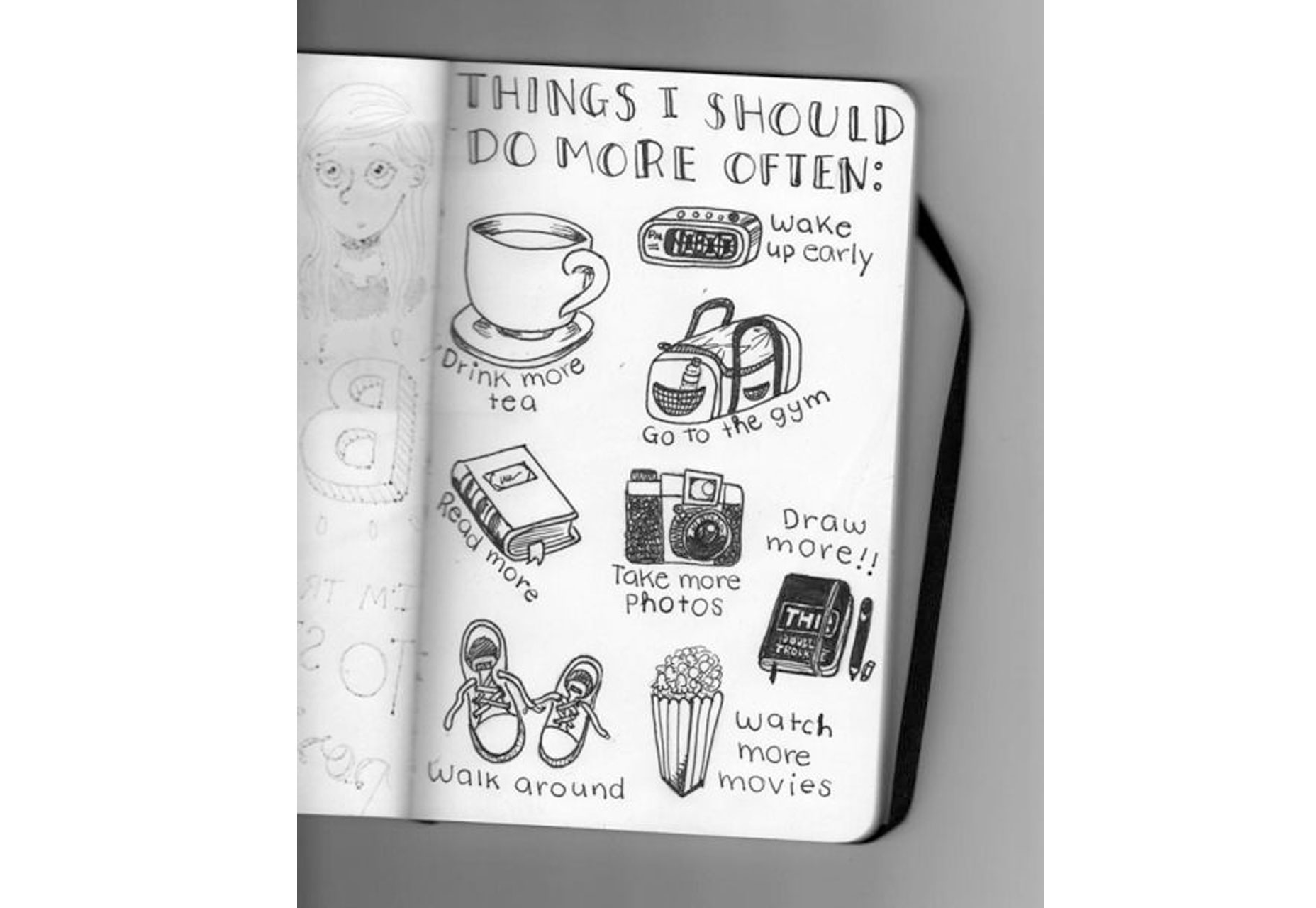
4. Daily Sketch/Doodle Reminder
There’s nothing like putting pen to paper to help create a little inspiration for almost any type of project. Taking a few minutes each day to sketch or doodle can help keep you feeling creative, even when burnout is creeping up on you. Make it part of your daily work schedule so that you’ll stay fresher in a design sense and feel refreshed when it comes to projects. (And as an added bonus, you never know when some of those mindless sketches or doodles might turn into something usable.)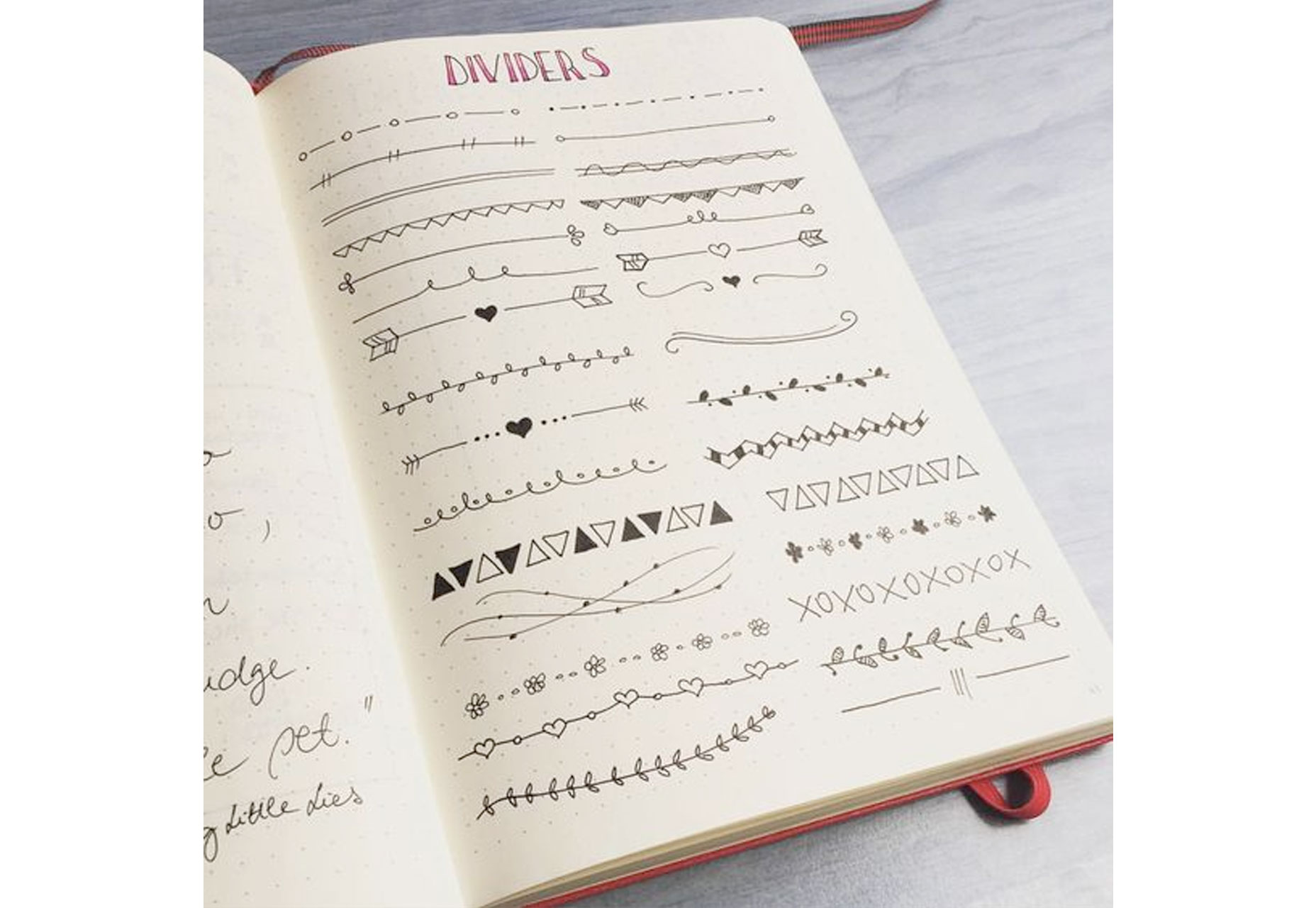
5. Build a Mood Board
Just because it is called a “journal” doesn’t mean you have to write everything. Use a bullet journal to collect design elements and even create a mood board for projects. Add divots from other places; it’s totally OK to add sticky notes or paste in photos for inspiration.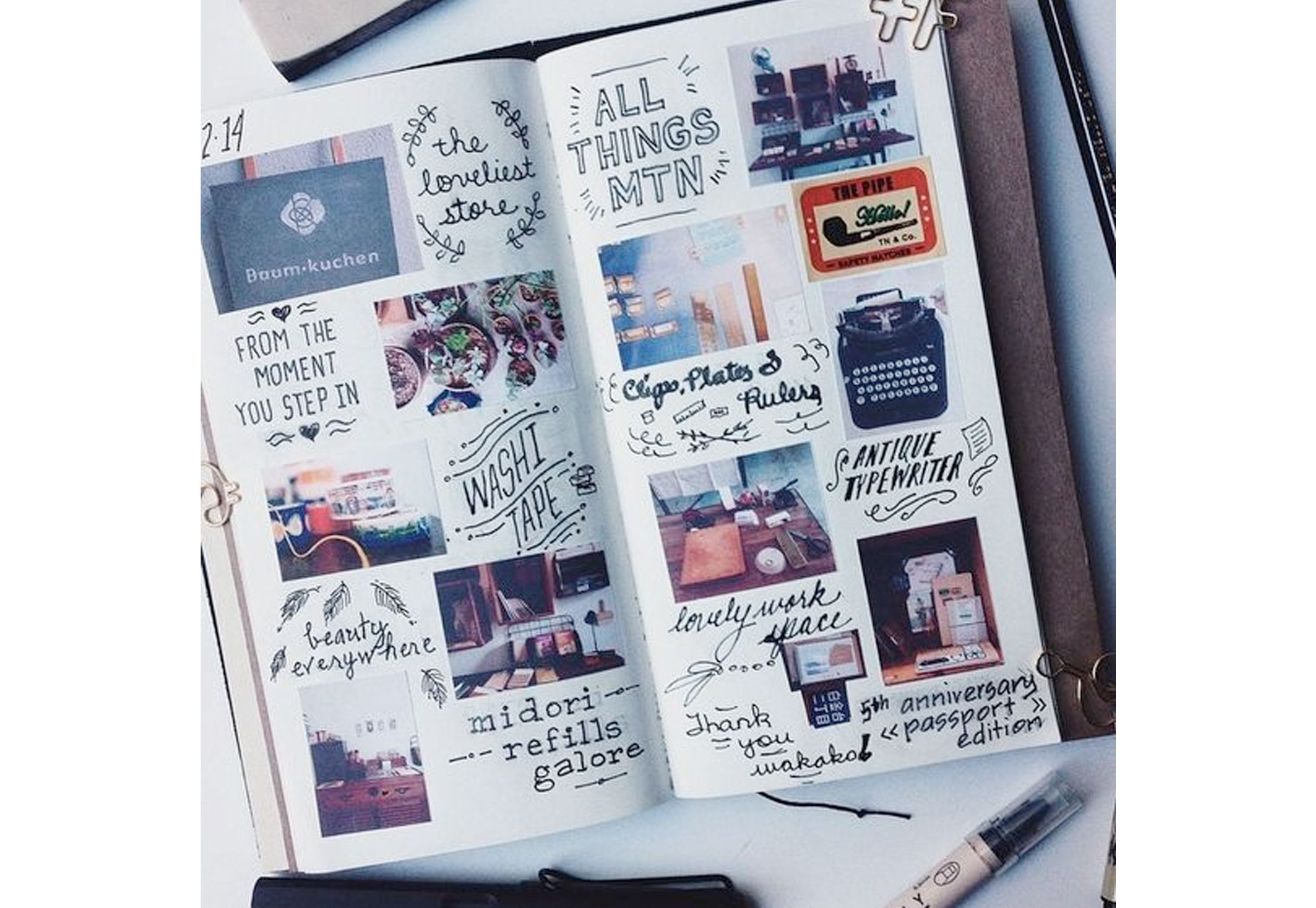
6. Save Ideas for Later
The best thing about a bullet journal is that all of your ideas are in one place. You can start down one creative path and keep expanding on an idea day after day. You can see how a creative thought has evolved and shaped over time. And you have the original ideas to go back to at any time. This is a great change from drawing something in illustrator, making changes and saving without keeping older iterations of the concept. The journal concept helps you see a design process and evolution over time. (You might go back and love where you started, or wonder what in the world you were thinking.)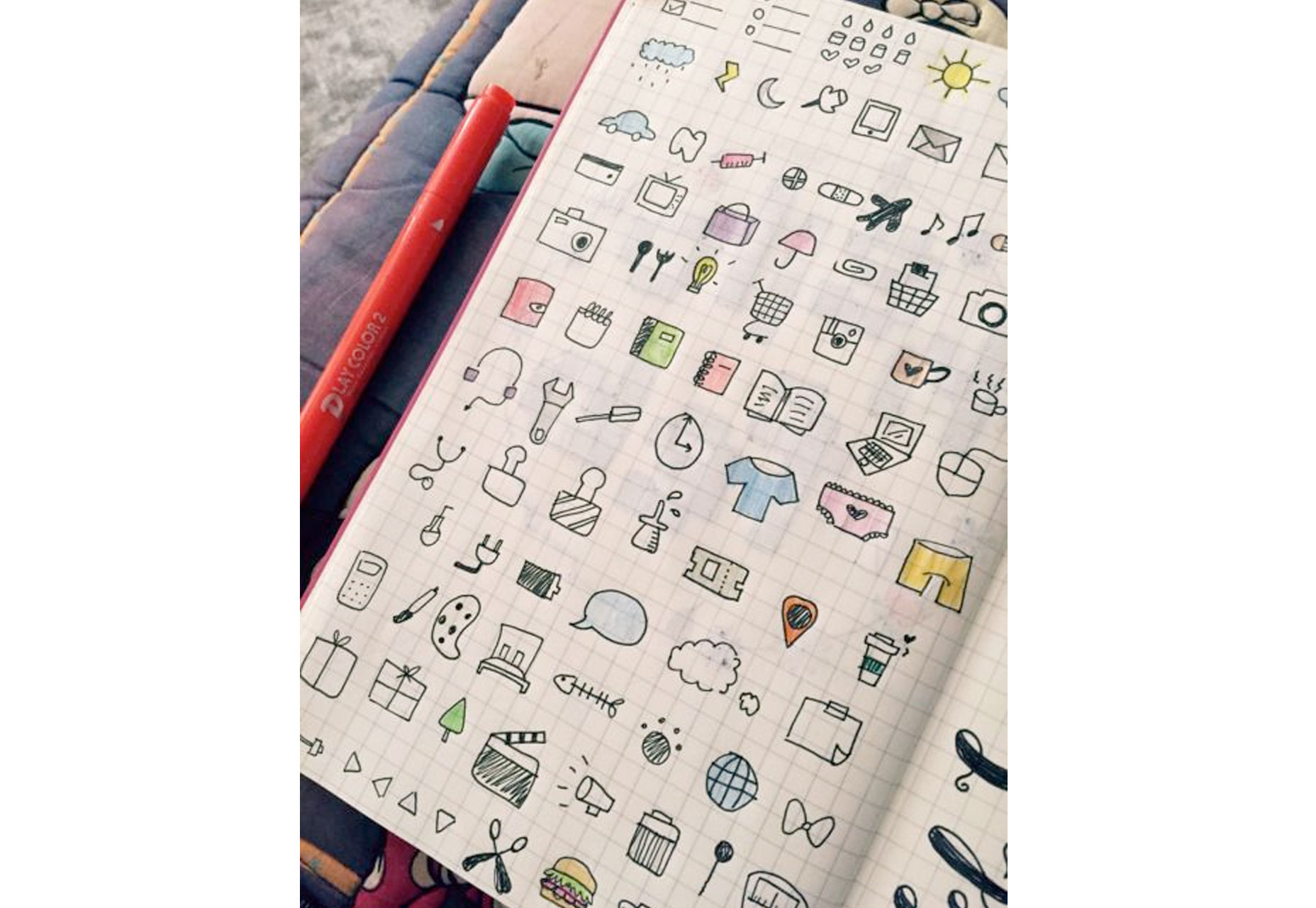
7. Experiment with Lettering
For a lot of designers, hand letting and typography is something we only look at from afar. Stretch your muscles by drawing letters—that is what writing is all about—in different styles. You don’t have to be a calligrapher, but there’s something special about the feel of drawing letters that’s hard to explain unless you try it. You may never show these lettering styles to anyone else, but it can help you think about lines and curves and how words come together from a visual standpoint.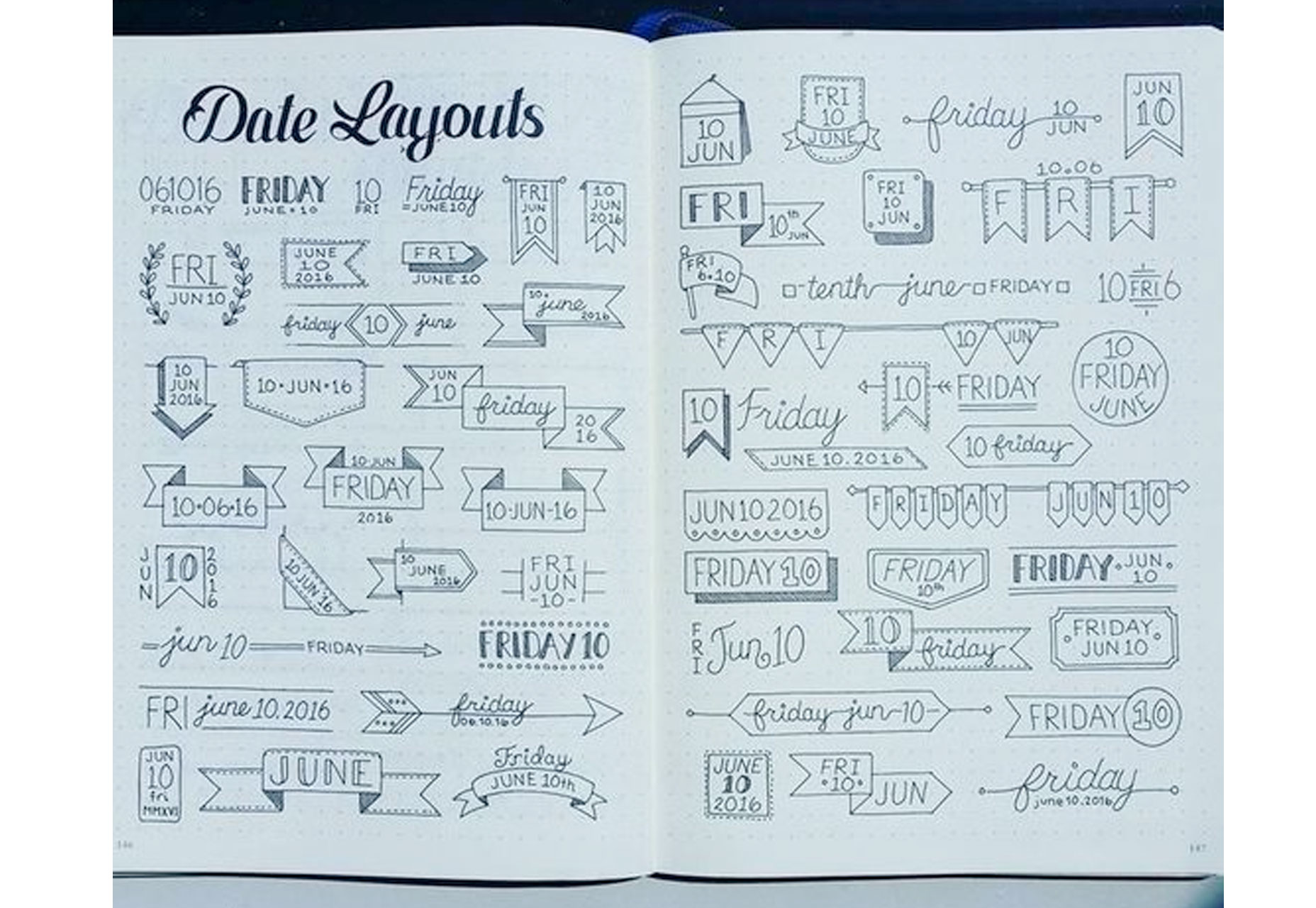
8. Create Goals
One of the most common—and pinned—bullet journal page-inspiration concepts is for setting and keeping track of goals. Whether personal or professional (or a mix of both), a bullet journal can help you outline what you want to do today, this month, this year or even long term. Create a visual map that shows what your goals are and how you can work toward them. There are two benefits to setting goals in a bullet journal:You have actually written down what you want to do. This can make a goal seem more real.
By putting the goal in a journal that you are interacting with regularly, you’ll see the goal and a reminder of what you are working toward. (That makes this a great option for big goals that inspire you.)
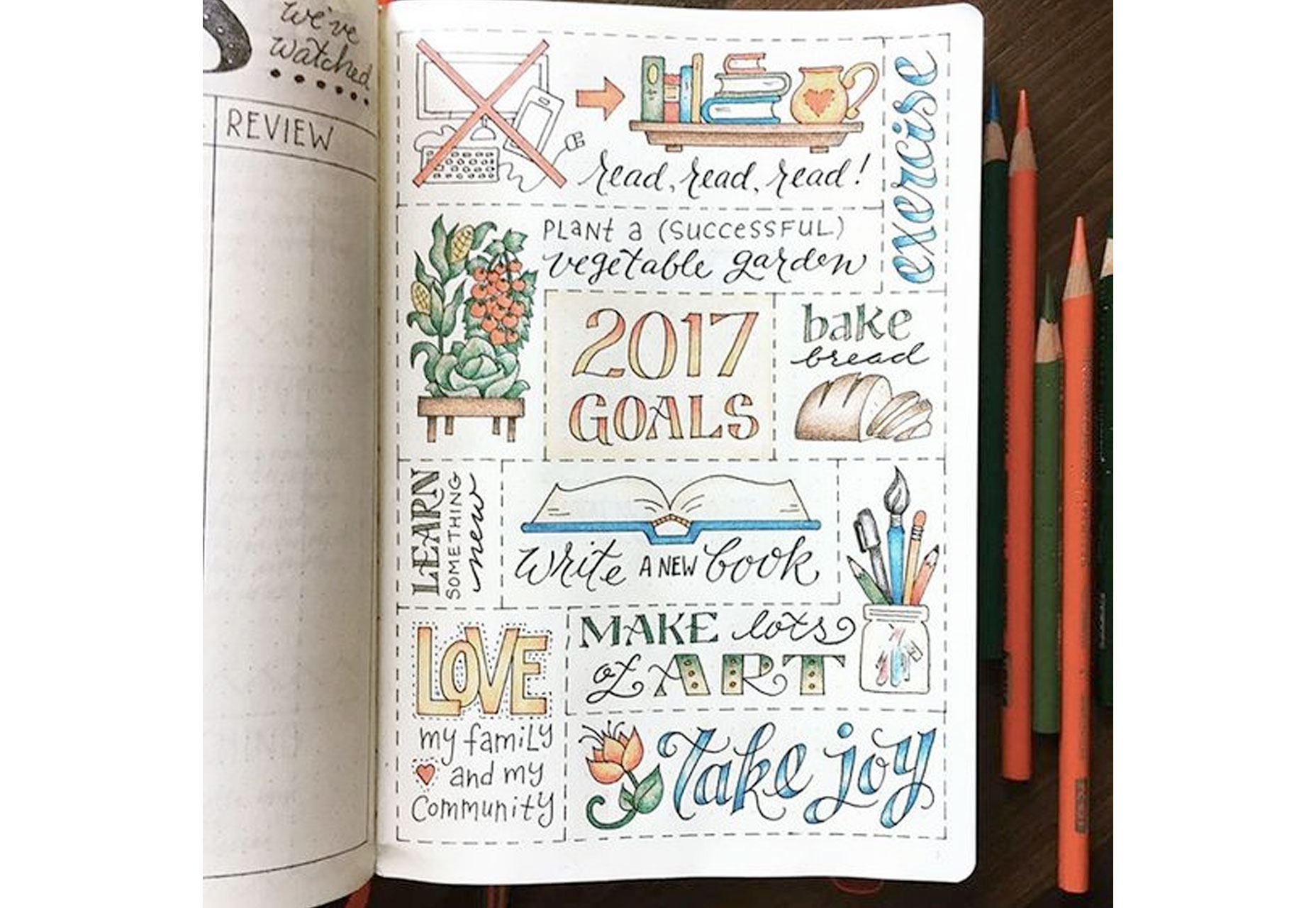
9. Practice Organization
Use a bullet journal to get organized. Try using a notebook with grid lines to practice using a grid and creating doodles within a set of constraints. Designing anything within a set on constraints is a valuable practice. It can help make you a better designer because you are practicing creativity within a set of boundaries. This is something that will apply to most projects, from creating a logo in a certain shape or planning for a visual treatment that must fit above the scroll of a web page.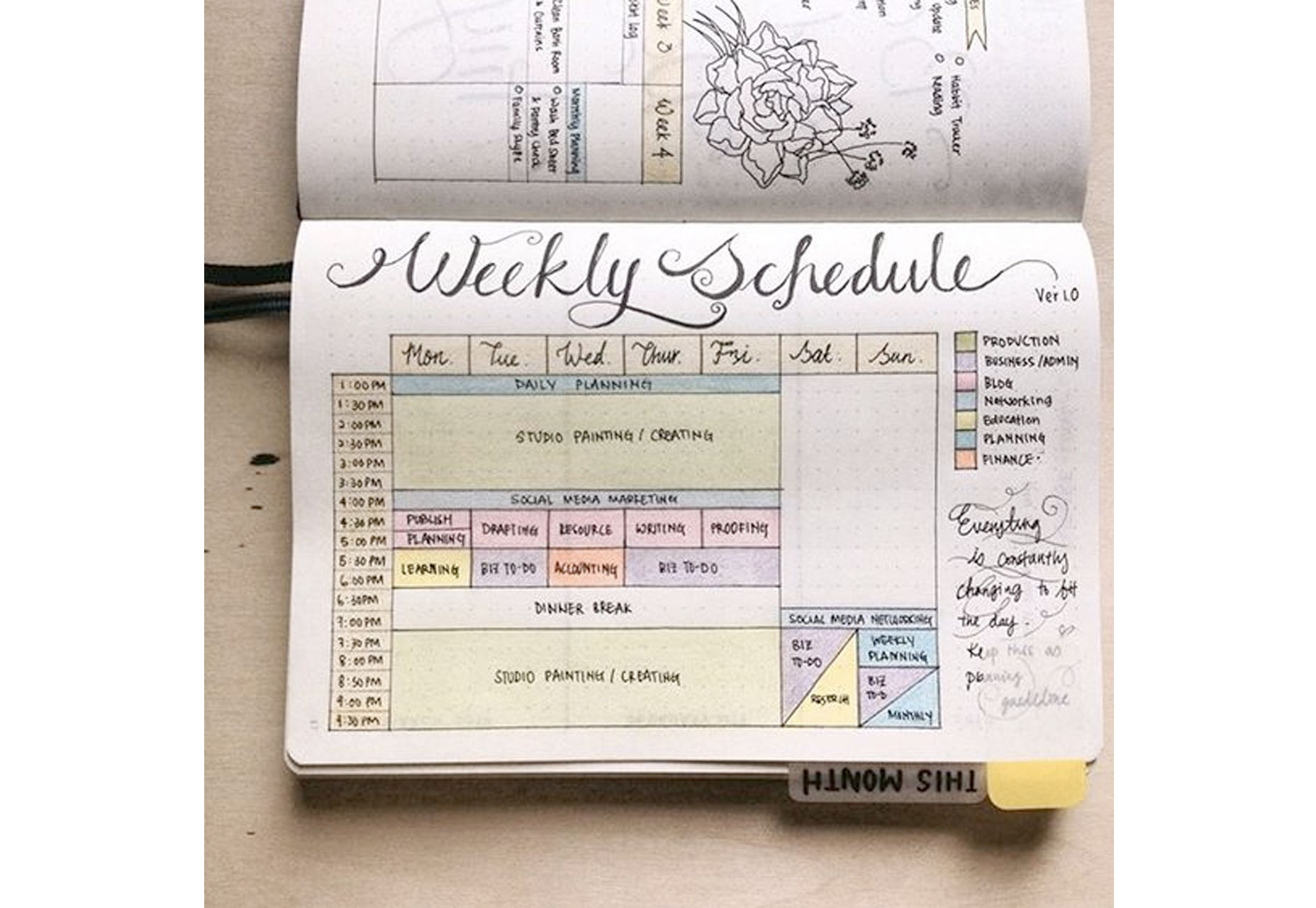
10. Use for Fluid Scheduling
While you can use a more traditional format for a bullet journal, most people pick a notebook with blank pages (rather than planner styles with dates). This allows you to create project lists that are more fluid. To-dos don’t have specific deadlines with this format. You can build a list of things to do and only add deadlines for necessary items. This allows for more fluidity, which often facilities creativity, because tasks can be done when the inspiration strikes. So that your journal stays organized in usable manner, it is recommended to add dates to pages to track some progress. (I note the date that a new journal page is started in the top corner as a reference point.)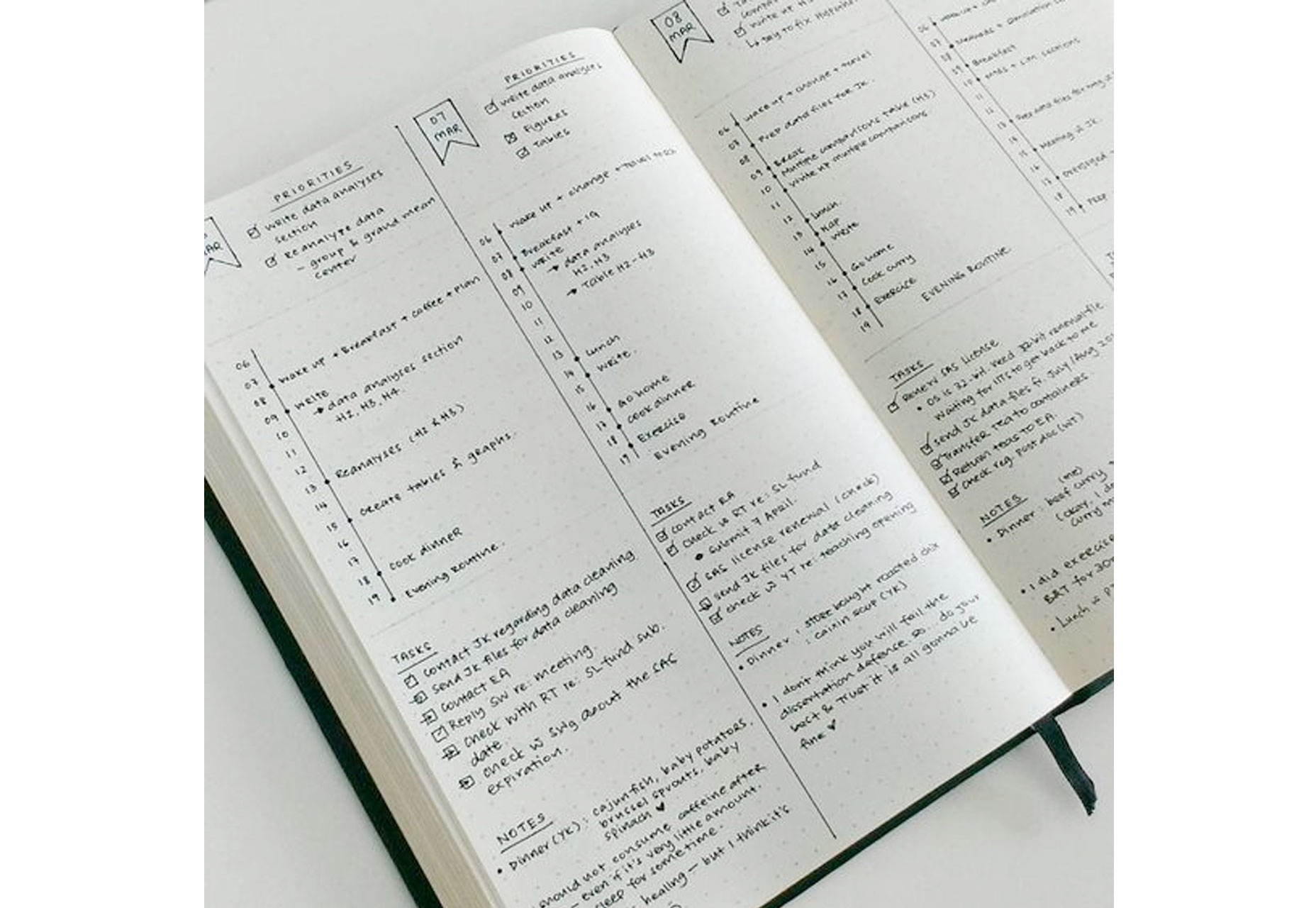
Conclusion
Here’s the thing that happens as the pages of your bullet journal start to fill up: You can see progress from project and you also have a tiny little book of art. The sketches, doodles and ideas are a source of collective inspiration as you flip back through the pages. So the bullet journal provides an immediate creative outlet and helps spur long-term creative thought. So find a notebook and some colored pens or pencils and start journaling!Carrie Cousins
Carrie Cousins is a freelance writer with more than 10 years of experience in the communications industry, including writing for print and online publications, and design and editing. You can connect with Carrie on Twitter @carriecousins.
Read Next
3 Essential Design Trends, November 2024
Touchable texture, distinct grids, and two-column designs are some of the most trending website design elements of…
20 Best New Websites, October 2024
Something we’re seeing more and more of is the ‘customizable’ site. Most often, this means a button to swap between…
Exciting New Tools for Designers, October 2024
We’ve got goodies for designers, developers, SEO-ers, content managers, and those of you who wear multiple hats. And,…
15 Best New Fonts, September 2024
Welcome to our roundup of the best new fonts we’ve found on the web in the previous four weeks. In this month’s edition…
By Simon Sterne
3 Essential Design Trends, October 2024
This article is brought to you by Constantino, a renowned company offering premium and affordable website design
You…
A Beginner’s Guide to Using BlueSky for Business Success
In today’s fast-paced digital world, businesses are always on the lookout for new ways to connect with their audience.…
By Louise North
The Importance of Title Tags: Tips and Tricks to Optimize for SEO
When it comes to on-page SEO, there’s one element that plays a pivotal role in both search engine rankings and user…
By Simon Sterne
20 Best New Websites, September 2024
We have a mixed bag for you with both minimalist and maximalist designs, and single pagers alongside much bigger, but…
Exciting New Tools for Designers, September 2024
This time around we are aiming to simplify life, with some light and fast analytics, an all-in-one productivity…
3 Essential Design Trends, September 2024
September's web design trends have a fun, fall feeling ... and we love it. See what's trending in website design this…
Crafting Personalized Experiences with AI
Picture this: You open Netflix, and it’s like the platform just knows what you’re in the mood for. Or maybe you’re…
By Simon Sterne
15 Best New Fonts, August 2024
Welcome to August’s roundup of the best fonts we’ve found over the last few weeks. 2024’s trend for flowing curves and…
By Ben Moss















